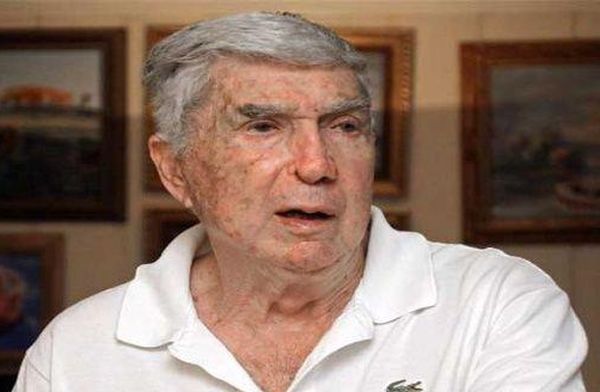
The Cuban-origin terrorist passed away in Florida, where he had lived freely despite constant denunciations of his criminal activities
The terrorist of Cuban origin Luis Posada Carriles passed away today in the U.S. state of Florida, where he had lived freely despite constant denunciations of his criminal activities and several extradition requests against him.
The lawyer Arturo Hernandez confirmed that Posada had died at the age of 90 at 5 am on Wednesday in a veterans’ home of the U.S. Government in Miramar, in South Florida.
Posada’s record includes several actions in Cuba and other Latin American countries, and attempts at assassinating the historic leader of the Cuban Revolution, Fidel Castro.
A document dated in 1976 and declassified by the U.S. Department of State said that Posada was the most probable perpetrator of the terrorist act that shook the Cuban people and other nations in the region on October 6, 1976.
It was the blowing-up in mid-air of a Cubana de Aviación plane that crashed off the coast of Barbados with 73 people on board: 11 Guyanese citizens, five Koreans and 57 Cubans, and Posada Carriles was considered the brains behind the sabotage.
The memorandum sent at the time to U.S. Secretary of State Henry Kissinger pointed out that the Central Intelligence Agency (CIA) was linked to three of the people who were ‘allegedly’ involved in the sabotage on the Cubana de Aviacion aircraft.
The document detailed the links between the CIA and individuals involved in the sabotage, and it directly mentioned Hernan Ricardo Lozano, Freddy Lugo, Orlando Bosch, Frank Castro, Orlando Garcia, Ricardo Morales Navarrete, Felix Martinez Suarez and Posada Carriles.
Documents declassified in the United States in late 2017 on the assassination of President John F. Kenney contain the secret file of the terrorist, who was a CIA informer but who was considered to be so dangerous that the agency itself kept him under surveillance.
According to those materials, the CIA regarded the plans by the confessed criminal as terrorism, and was worried that its relationship with him was made public after the sabotage on the Cuban airliner.
One of the declassified documents referred to a meeting among Posada, Bosch and other individuals in 1977 in the Dominican Republic, where they discussed ‘several terrorist plans’, including ‘planting bombs on Cuban planes and diplomatic missions’ of the Caribbean island.
The CIA was also informed about the supplies of weapons to Guyanese insurgents in 1969, as well as Posada’s participation in an attempt at overthrowing the government of Guatemala and his role in several plots to assassinate Fidel Castro.
In 2005, he arrived illegally in the United States and was arrested for that crime, but he paid bail and was released two years later, despite international calls to extradite him to Venezuela, where he was wanted.
In 2011, Judge Kathleen Cardone acquitted Posada of a migration crime, because she considered him ‘old and invalid’. Since then, he had lived in this country under the protection of the U.S. Government.
 Escambray ENGLISH EDITION
Escambray ENGLISH EDITION





Escambray reserves the right to publish comments.